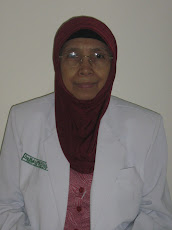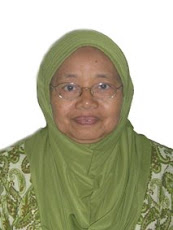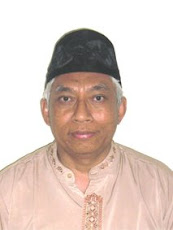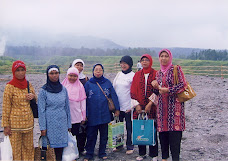
What is Menopause?
Menopause (also called the change of life) is the transition period in a woman's life when the ovaries stop producing eggs. When the ovaries stop producing eggs, menstrual activity decreases and eventually ceases, and the body decreases the production of the female hormones, estrogen and progesterone.
Menopause affects individual women differently. In some women, menstral activity stops suddenly. In other women, menstrual activity tapers off until it completely stops. It may take up to 3 years for the menstrual cycle to completely stop. Menopause is a natural event.
When does Menopause occur?
The occurrence of menopause is different for each woman. It usually occurs between the ages of 40 and 55. The age of when menopause occurs is affected by several factors, including
Nutrition. Malnourished women begin menopause about 4 years earlier than well-nourished women
Early onset of menstruation. Women who begin menstruation at an early age are more likely to begin menopause later
What are the Symptoms of Menopause?
The major symptoms of menopause are:
missed periods
sleep disturbances
hot flashes
vaginal dryness
changes in mood
lack of sex drive
Each of these symptoms are a result of hormonal changes. Hot flashes are caused by an increase of blood flow in the blood vessels of the face, neck, chest and back. Vaginal dryness is caused by thinning of the tissues of the vaginal wall, are the two side effects most frequently complained about. The mood changes and lack of sex drive may result partially from the hormone decrease, but may also result from having to deal with hot flashes and vaginal dryness.
Can Menopause be prevented?
No. Menopause is a natural event that will occur to all women.
Hot Flashes
Hot flashes are caused by rapid decreases in estrogen levels. Unfortunately hot flashes cannot be prevented. However, they can be helped and made less uncomfortable. The herb Black Cohosh, used regularly, may help reduce the incidence and severity of hot flashes in menopause. Here are some techniques that can help you deal with them.
Wear loose clothing and dress in layers so you can peel off the top layers during a hot flash.
Wear fabrics that absorb moisture and dry quickly.
Avoid foods that may trigger hot flashes (hot drinks and spicy foods are common triggers)
Splash your face with cool water at the start of a flash.
Avoid Stress. It may contribute to the occurrence of hot flashes.
Menopause Statistics
After menopause, as a woman's body’s supply of the hormone estrogen declines the likelihood of developing heart disease increases.
About 75% of women experiencing menopause will have hot flashes.
All women will experience menopause.
Menopause (also called the change of life) is the transition period in a woman's life when the ovaries stop producing eggs. When the ovaries stop producing eggs, menstrual activity decreases and eventually ceases, and the body decreases the production of the female hormones, estrogen and progesterone.
Menopause affects individual women differently. In some women, menstral activity stops suddenly. In other women, menstrual activity tapers off until it completely stops. It may take up to 3 years for the menstrual cycle to completely stop. Menopause is a natural event.
When does Menopause occur?
The occurrence of menopause is different for each woman. It usually occurs between the ages of 40 and 55. The age of when menopause occurs is affected by several factors, including
Nutrition. Malnourished women begin menopause about 4 years earlier than well-nourished women
Early onset of menstruation. Women who begin menstruation at an early age are more likely to begin menopause later
What are the Symptoms of Menopause?
The major symptoms of menopause are:
missed periods
sleep disturbances
hot flashes
vaginal dryness
changes in mood
lack of sex drive
Each of these symptoms are a result of hormonal changes. Hot flashes are caused by an increase of blood flow in the blood vessels of the face, neck, chest and back. Vaginal dryness is caused by thinning of the tissues of the vaginal wall, are the two side effects most frequently complained about. The mood changes and lack of sex drive may result partially from the hormone decrease, but may also result from having to deal with hot flashes and vaginal dryness.
Can Menopause be prevented?
No. Menopause is a natural event that will occur to all women.
Hot Flashes
Hot flashes are caused by rapid decreases in estrogen levels. Unfortunately hot flashes cannot be prevented. However, they can be helped and made less uncomfortable. The herb Black Cohosh, used regularly, may help reduce the incidence and severity of hot flashes in menopause. Here are some techniques that can help you deal with them.
Wear loose clothing and dress in layers so you can peel off the top layers during a hot flash.
Wear fabrics that absorb moisture and dry quickly.
Avoid foods that may trigger hot flashes (hot drinks and spicy foods are common triggers)
Splash your face with cool water at the start of a flash.
Avoid Stress. It may contribute to the occurrence of hot flashes.
Menopause Statistics
After menopause, as a woman's body’s supply of the hormone estrogen declines the likelihood of developing heart disease increases.
About 75% of women experiencing menopause will have hot flashes.
All women will experience menopause.

.jpg)








No comments:
Post a Comment